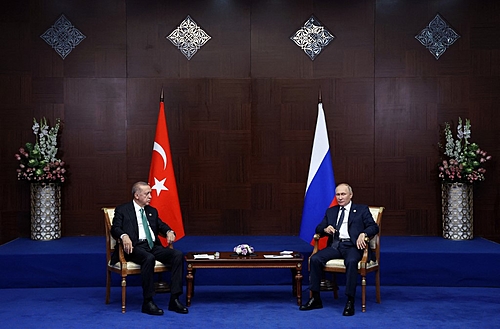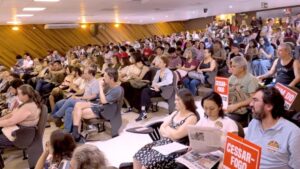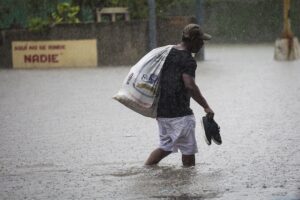
After Recep Tayyip Erdogan’s victory in Turkey’s elections last Sunday (28), the Turkish government spokesman criticized the pressure that Western nations exerted for the country to adopt sanctions against Russia, because of the war in Ukraine.
“Didn’t the other countries pressure us? Of course, they pressured us,” the spokesman said.
“For a year and a half, Western countries have been putting incredible pressure on us, they come and demand sanctions, ask why we are cooperating with Russia and so on. fuel to the Akkuyu nuclear power plant.”
At the end of April, Russia and Turkey officially formalized the delivery of nuclear fuel to power unit No. 1 of the Akkuyu nuclear power plant, which is being built with the participation of Moscow. It is Türkiye’s first nuclear power plant. According to President Recep Erdogan, all power units will be put into operation by 2028.
Earlier, the spokesman for the Turkish government had declared that the adoption of sanctions against Russia would only harm Turkey itself.
Last Sunday (28), the President of Turkey, Recep Tayyip Erdogan, consolidated his re-election after defeating the centrist candidate Kemal Kilicdaroglu with 52% of the votes. The opposition rival had 47.84%.
Russian officials lash out at Erdogan’s re-election
The elections were followed with great expectations by Moscow, as a possible change of power could redefine the direction of Turkey’s foreign policy in relation to Russia, considering the good relations between Erdogan and the Russian leader, Vladimir Putin.
Therefore, several Russian officials celebrated Erdogan’s re-election. The vice-president of the Federation Council, Konstantin Kosachev, declared that Turkey takes a balanced position in the world, defending to a large extent a “multipolar world”. According to him, the line of international policy adopted by Erdogan’s administration “is in many respects consonant with the position that characterizes Russian foreign policy”.
He added that the result of the presidential elections means the maintenance of continuity in Russian-Turkish relations. “We see ourselves as partners in solving many global problems of our time. And this is a very powerful contribution to how our country and the world around us feel,” he emphasized.
The first deputy head of the State Duma’s Committee on International Affairs (lower house of the Russian parliament), Dmitry Novikov, noted that Turkey’s policy “is an example of a multi-vector approach, which, in turn, leads to the formation of a multipolar world”. According to the deputy, Russia counts on the continuity of joint economic projects, with the maintenance of a “stable line” (of bilateral relations) by Turkey.
Russian senator Alexei Pushkov also celebrated Erdogan’s victory, saying that the re-election represents the maintenance of Ankara’s foreign policy vector, “subordinated to the country’s own interests, and not to the interests of external forces that seek to determine Turkish policy. In In his opinion, both the desire of Turkish society for national independence and irritation due to constant pressure from the West are noticeable.
“Erdogan’s trajectory does not serve our interests at all. But his support from much of Turkish society means a reluctance to return to US dominance. It would be a return to the 20th century. Turkey sees itself in a new 21st century – a century of multipolarity and changes in established force fields. She looks to the future,” wrote Pushkov on his Telegram channel.
Earlier, Russian President Vladimir Putin congratulated Erdogan on his victory in the May 28 presidential election. He noted that the result of the vote was “a natural result of the selfless work” of the politician as head of Turkey and a testament to the people’s support for his efforts to strengthen the state’s sovereignty.
Editing: Rodrigo Durão Coelho
Source: www.brasildefato.com.br

